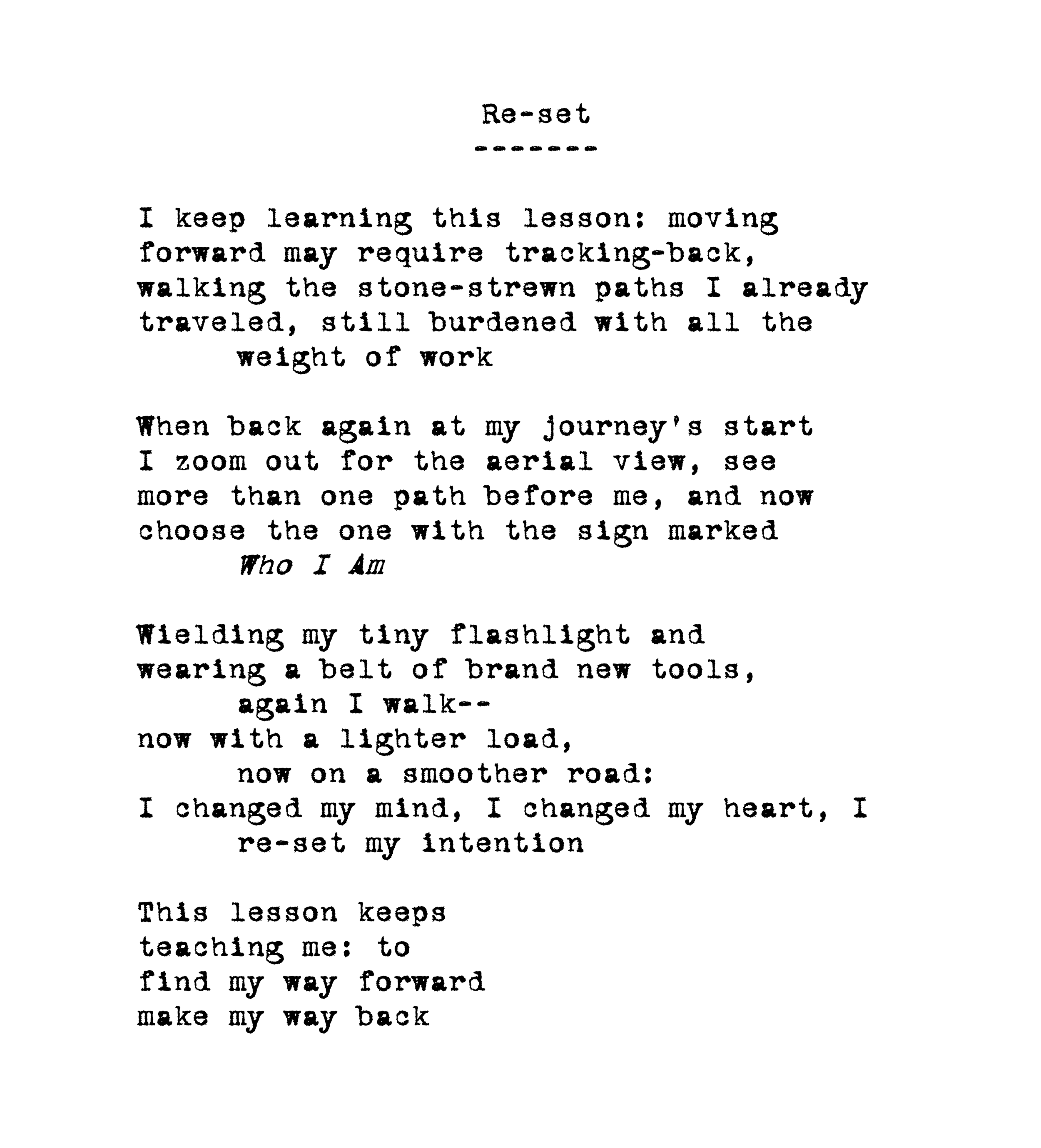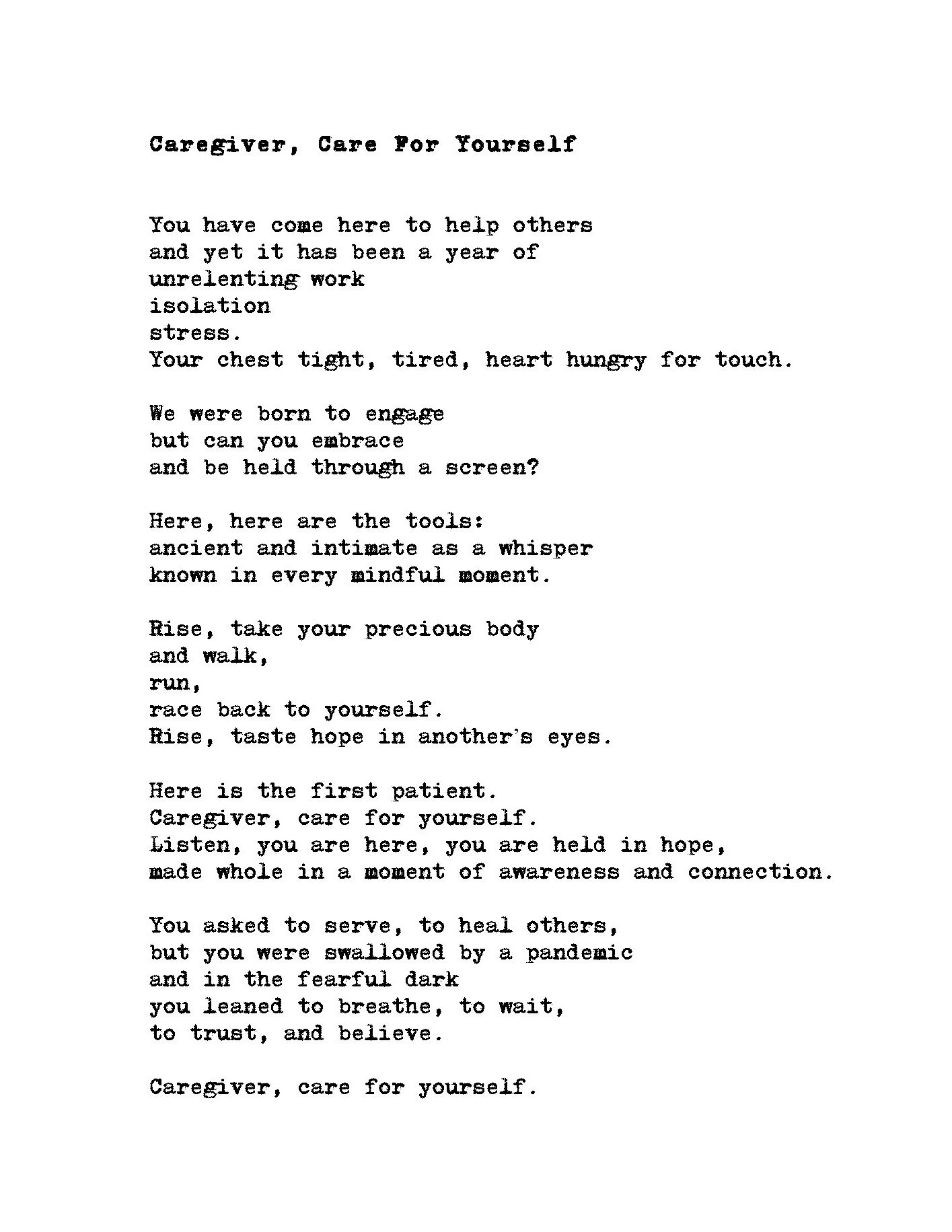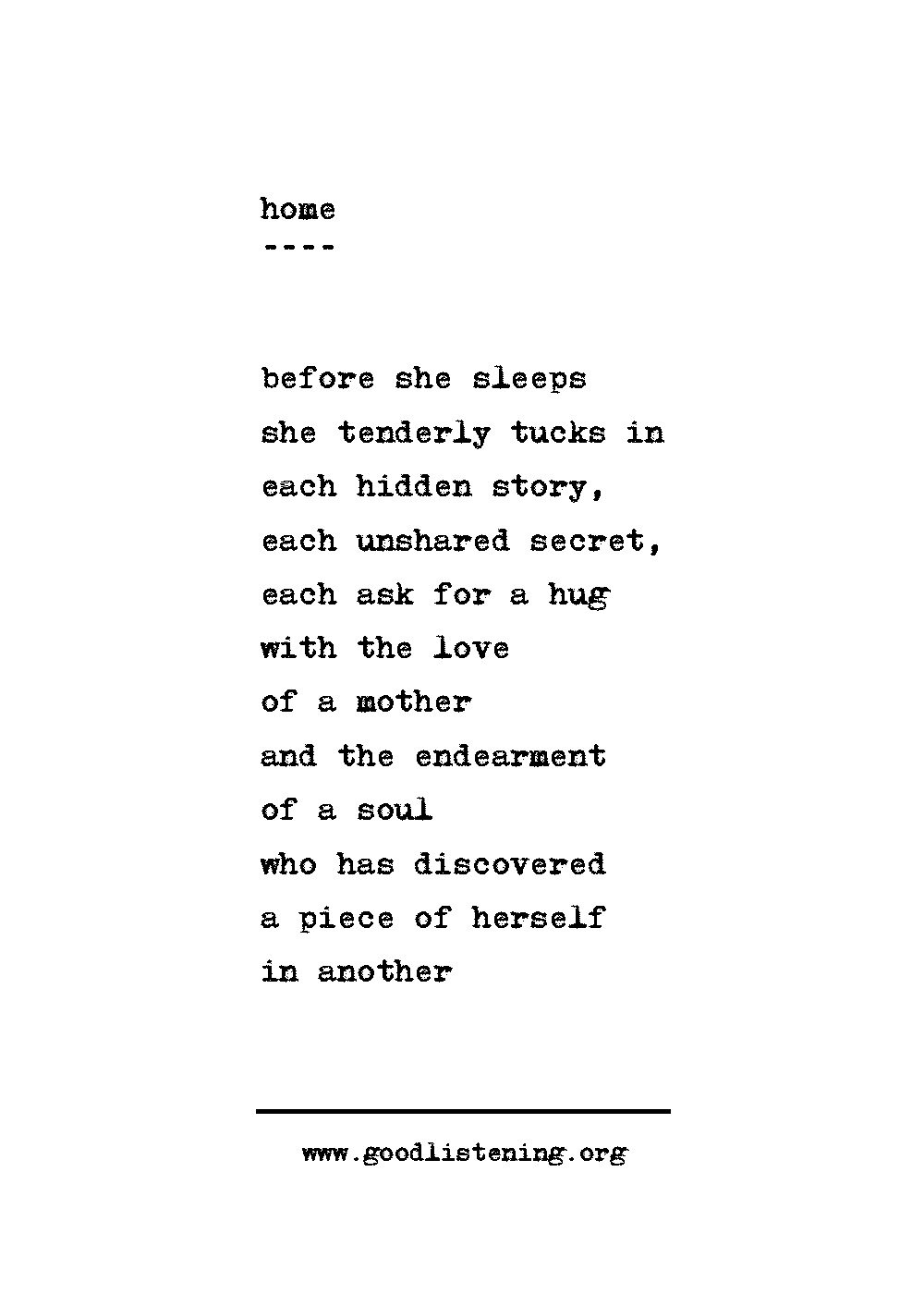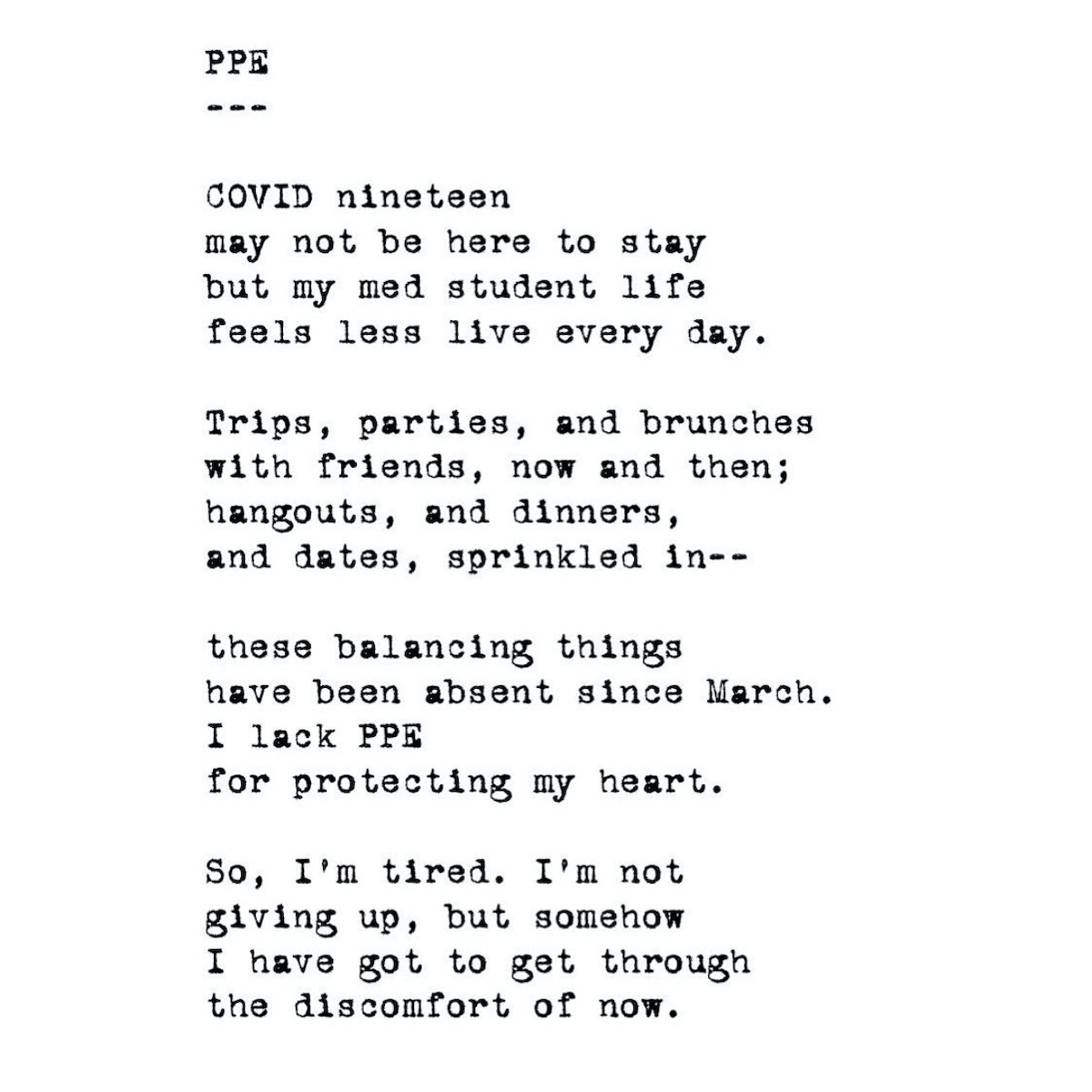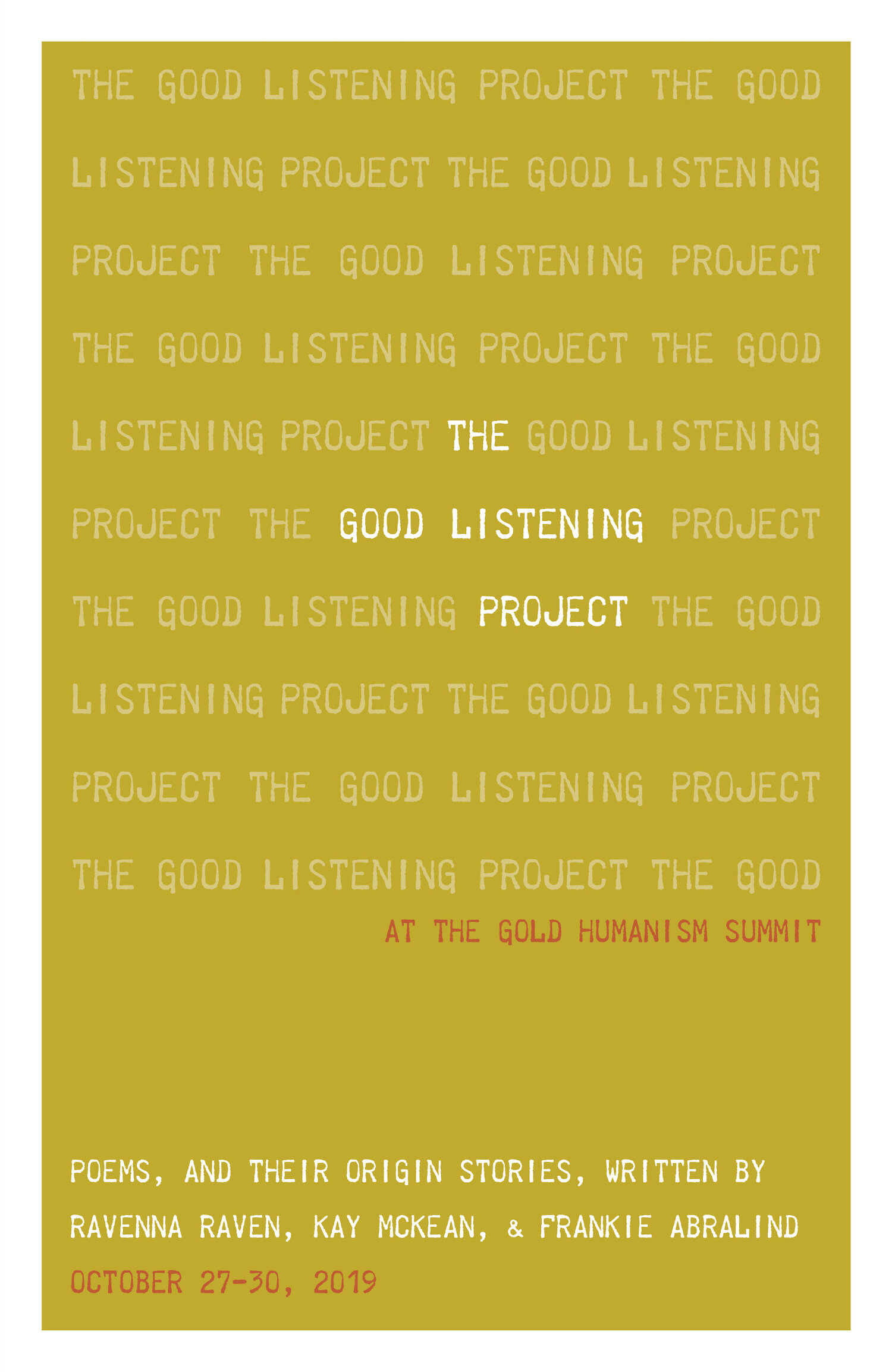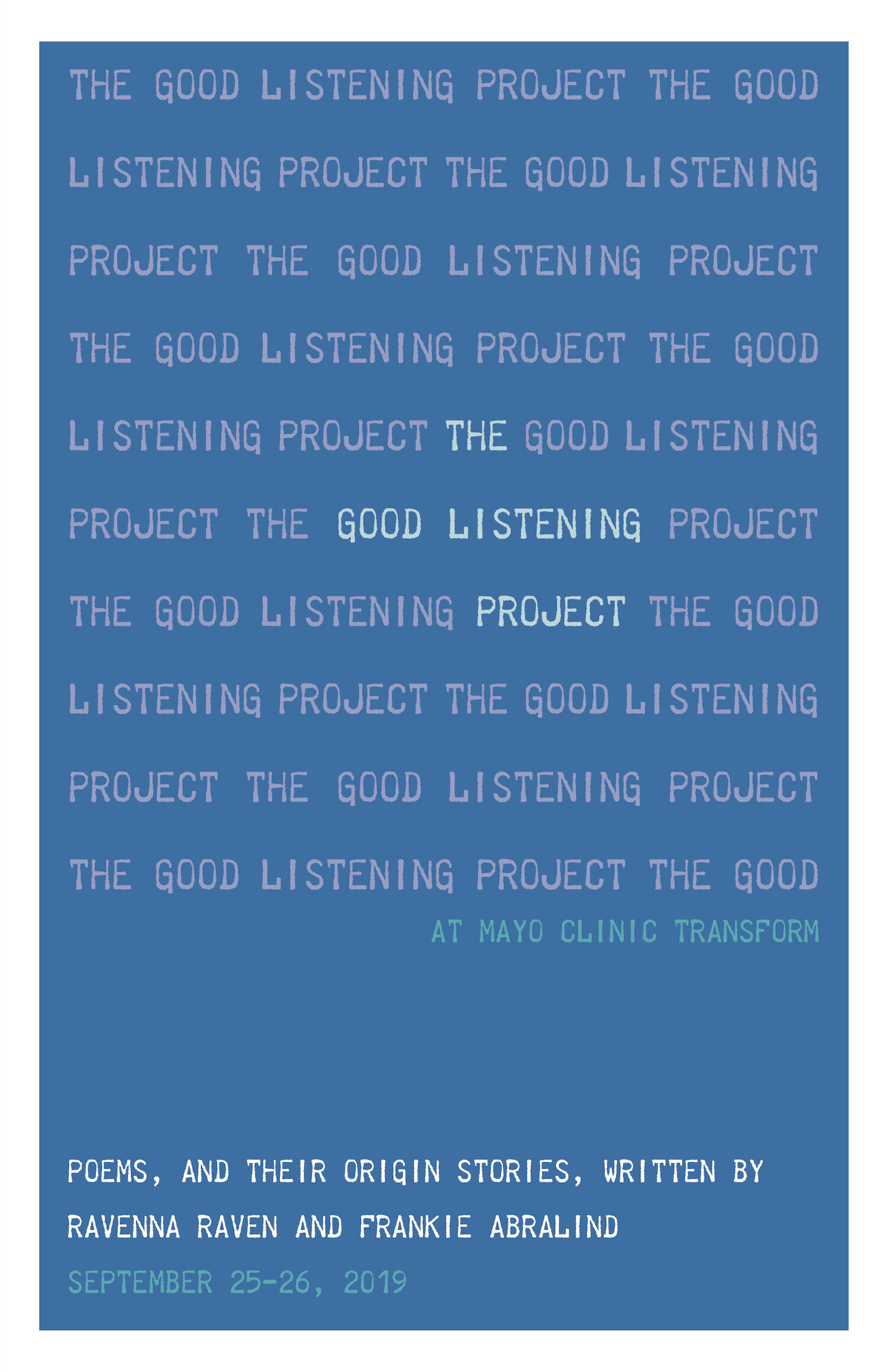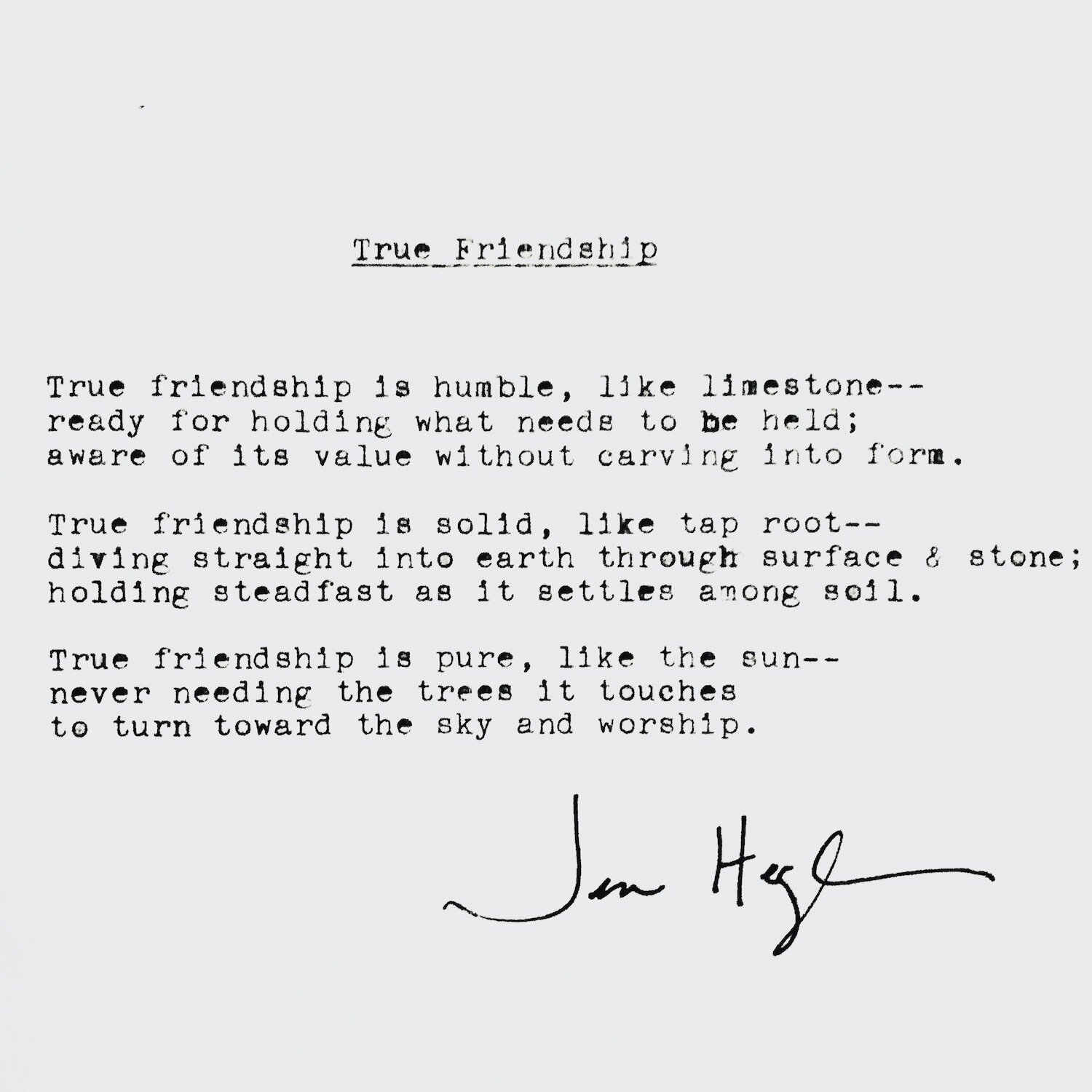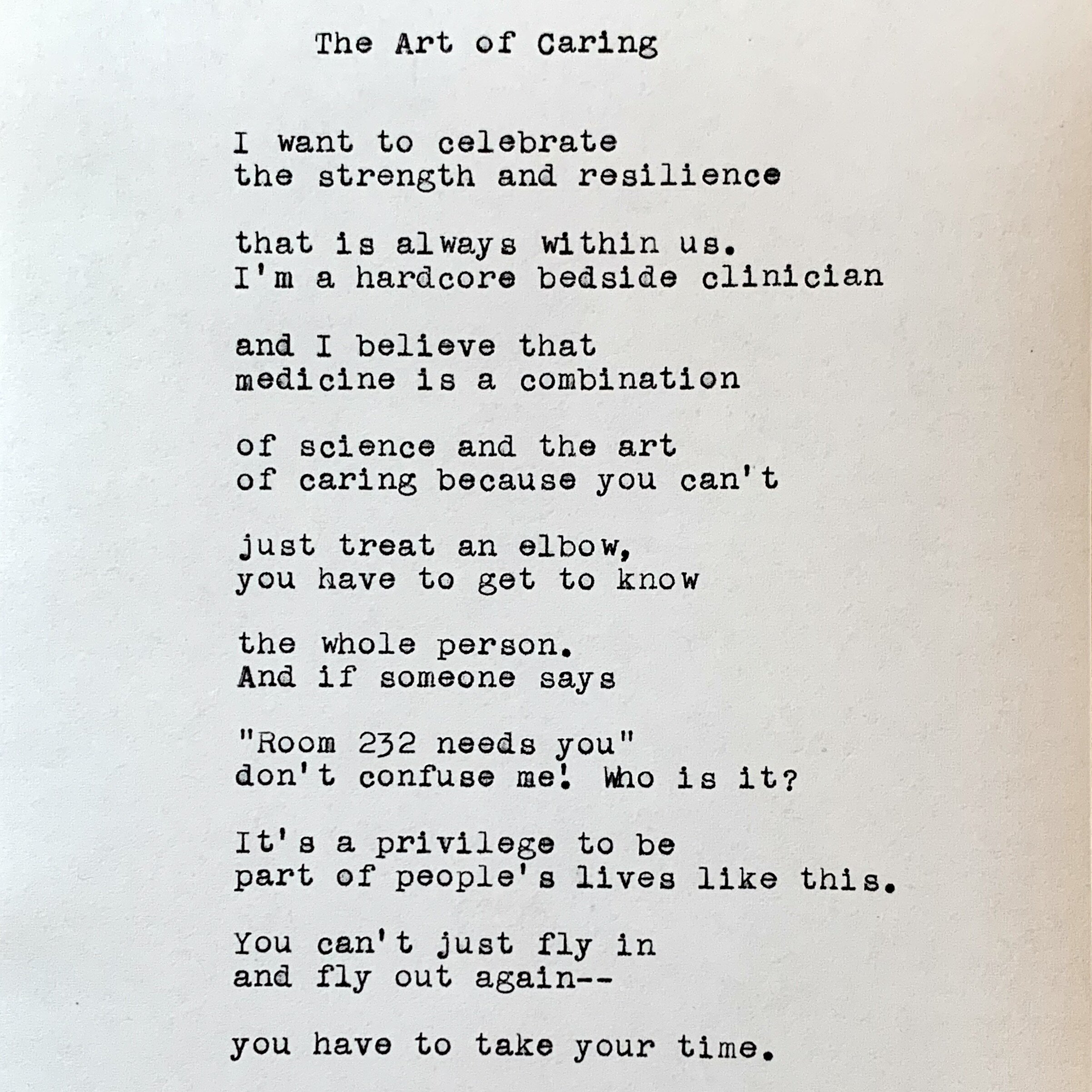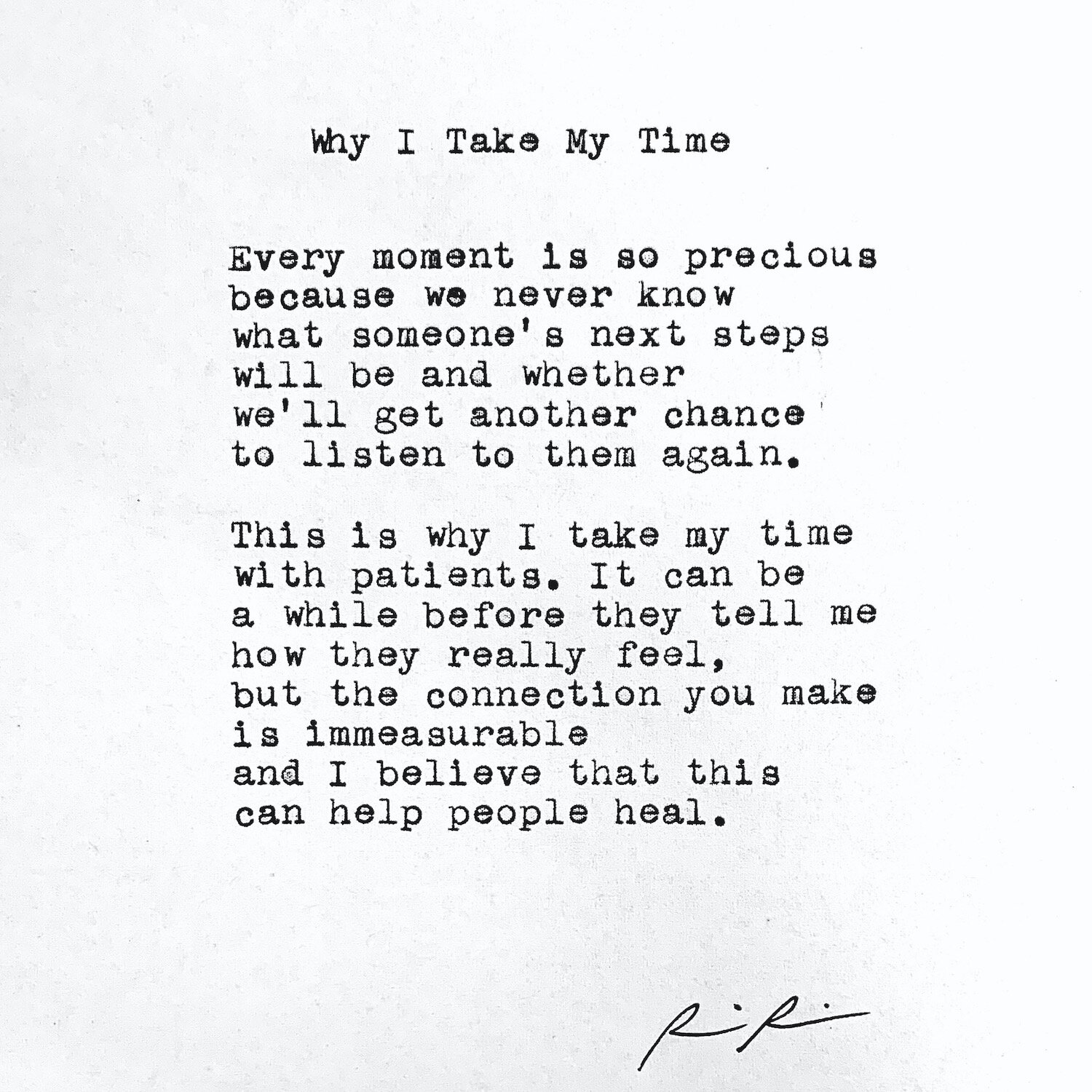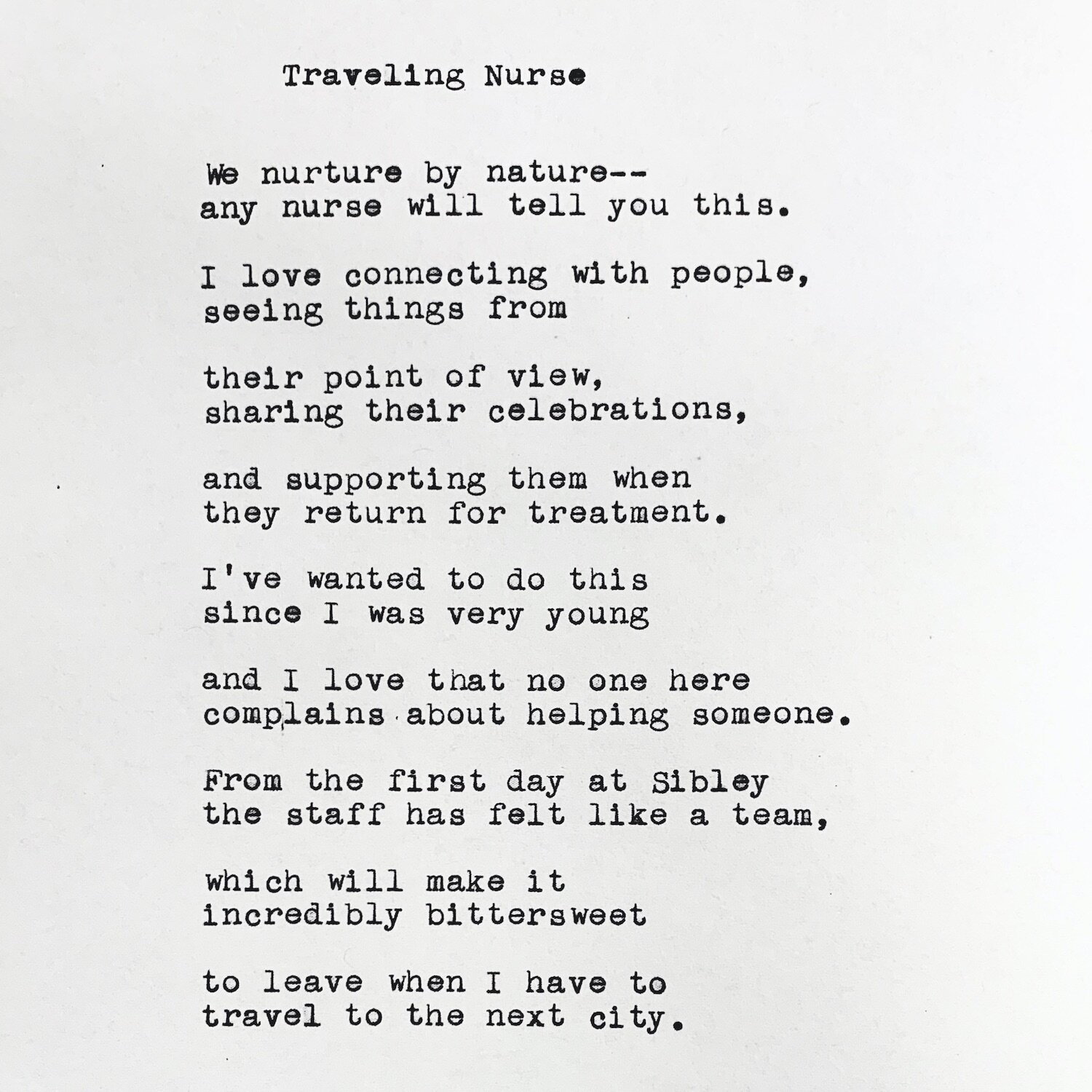The Association of American Medical Colleges (AAMC) leads and serves the academic medicine community to improve the health of people everywhere. In partnership with the National Endowment for the Arts, Listener Poets from The Good Listening Project spoke with 252 of their constituents from all areas of medical education. This book contains the resulting poems and stories, written by our Listener Poets.
Topics on the minds of participants ranged widely in a time marked by a global pandemic, widespread demonstrations around racial equity, and the persistent dedication of healthcare workers. Listener Poets began each conversation by asking, “What should the poem be about?” Then, they listened.
Order here:
“I feel like I have decision fatigue,” she told me. It was normal for her to make many choices at work, but COVID had dramatically increased the number of medical decisions she had to make at home.
This physician discussed being the only one in his practice network with expertise in patients with a specific type of chronic pain.
“Our constituents are uniquely affected by the pandemic,” they said. This poemee was an educational psychologist who spoke about how much they missed working in person with med students, healthcare staff, and medical educators.
"I grew from the experience – though I think it aged me 10 years!" This is how a resident described a turning point with a specific patient when he recognized how burned out he was.
“There’s a constant feeling inside that I should be doing more,” she said. “But I also want to be kind to myself and recognize all that I’ve given.”
He brought the tools of mindfulness and self-care to medical students, many of whom had been studying all this past year, 10 hours a day, day after day, in isolation.
He had recently lost his father to COVID-19 and was reflecting on forgiveness. For the majority of his life with his father, they did not have a positive relationship. However, in the last three years of life, his father lost his memory and his personality changed into someone who was loving and kind.
“When you get to hear the hidden sides of people’s stories, you never look at people the same,” she said, with a noticeable tenderness in her voice. This woman was a therapist who supported physicians and residents. “Sometimes as I lay in bed at night I inhabit the stories people share with me.”
“When everything else stops, we keep going,” she began. This woman had always wanted to be a physician, and as a medical school student, was about to become the seventh generation of physicians on her mother’s side of the family.
She was tired after working twelve straight days on her current rotation. It was her third year of medical school, and she was already feeling burnt out. “I have five more years like this,” she said. “My sister tells me, ‘Keep pushing, you can get through it,’ but I don’t know if I can.”





